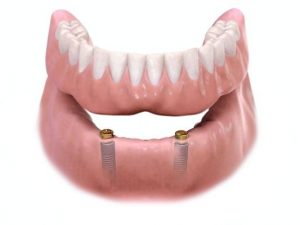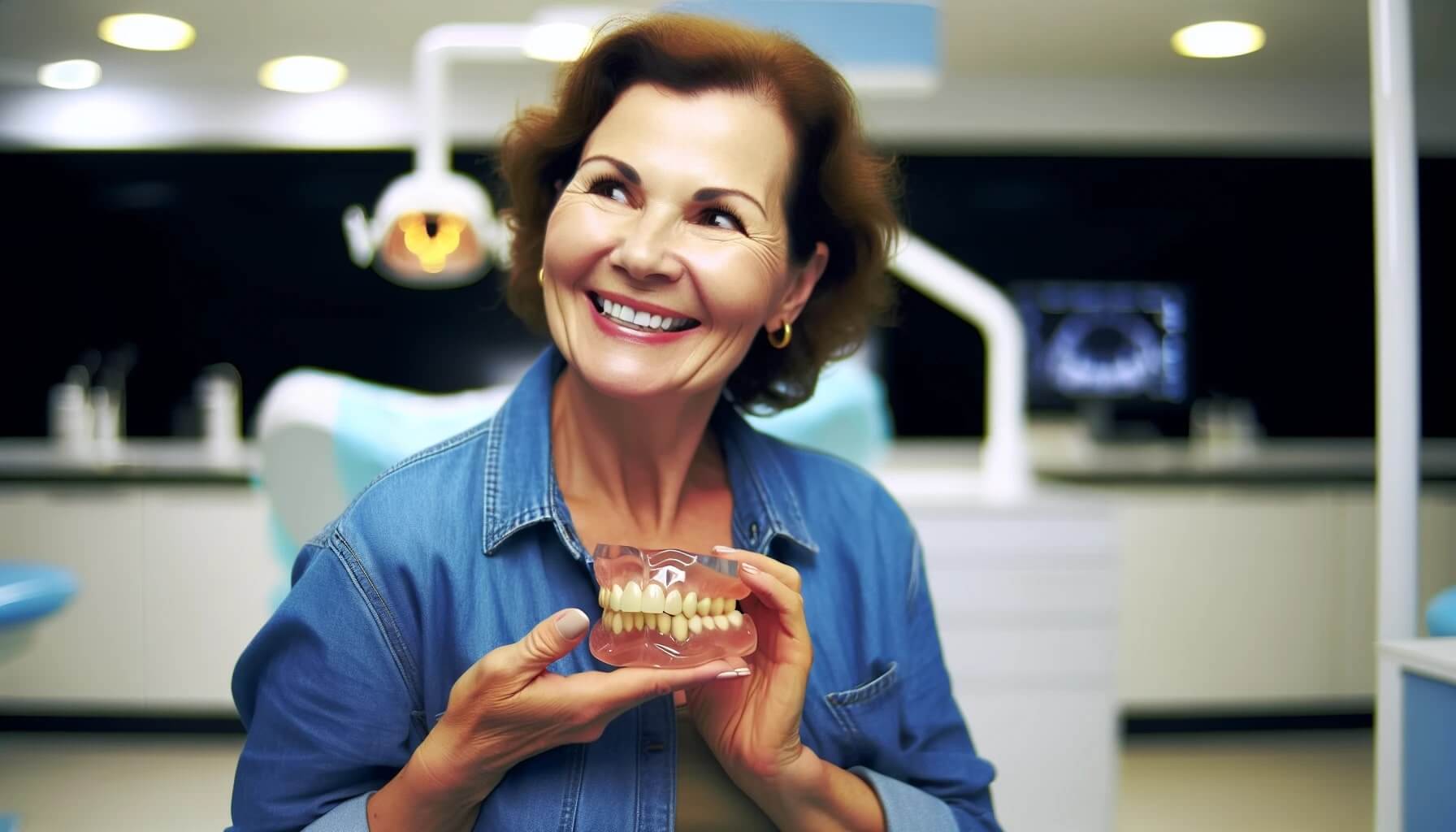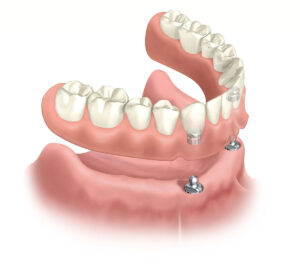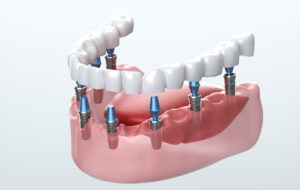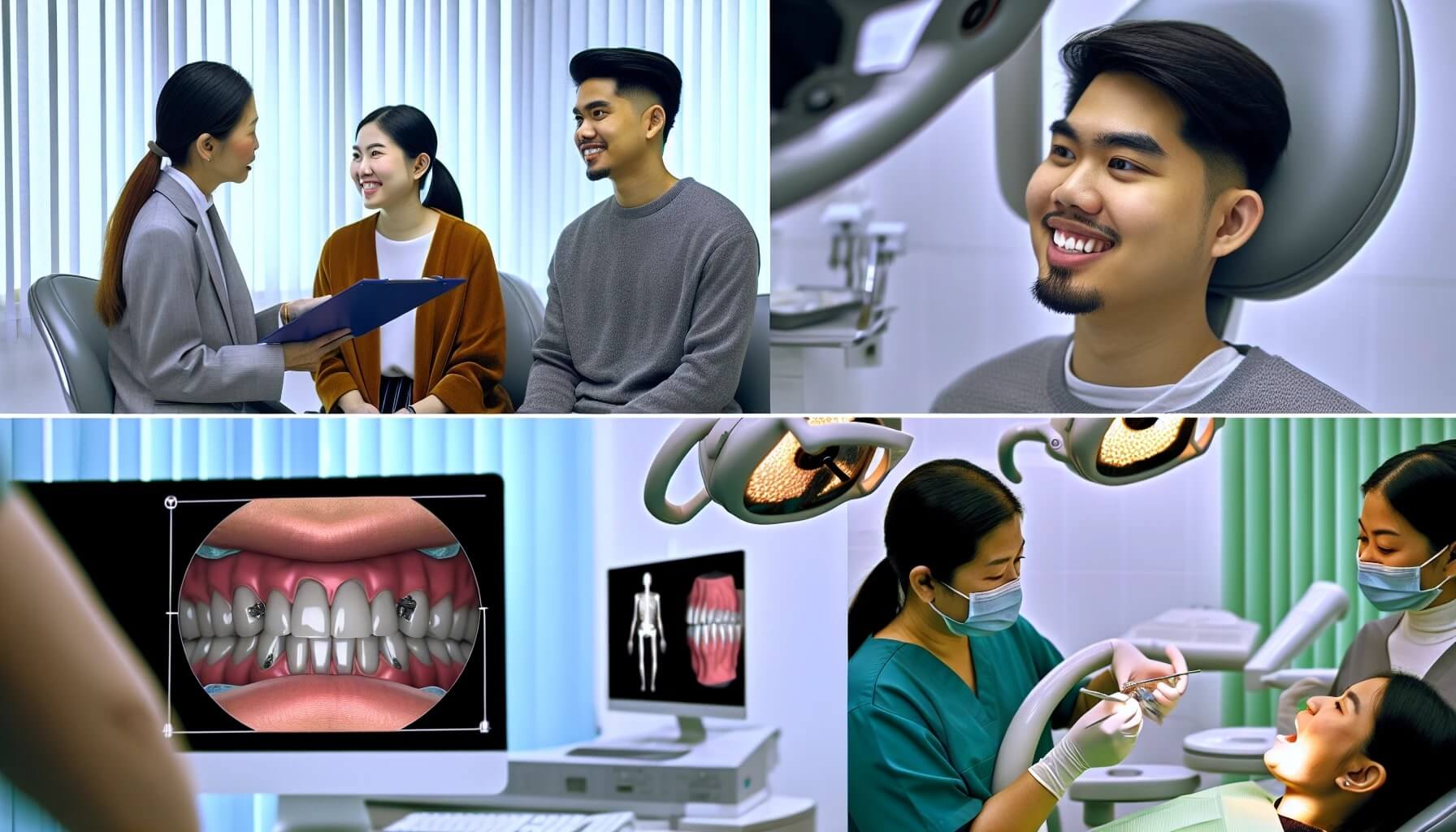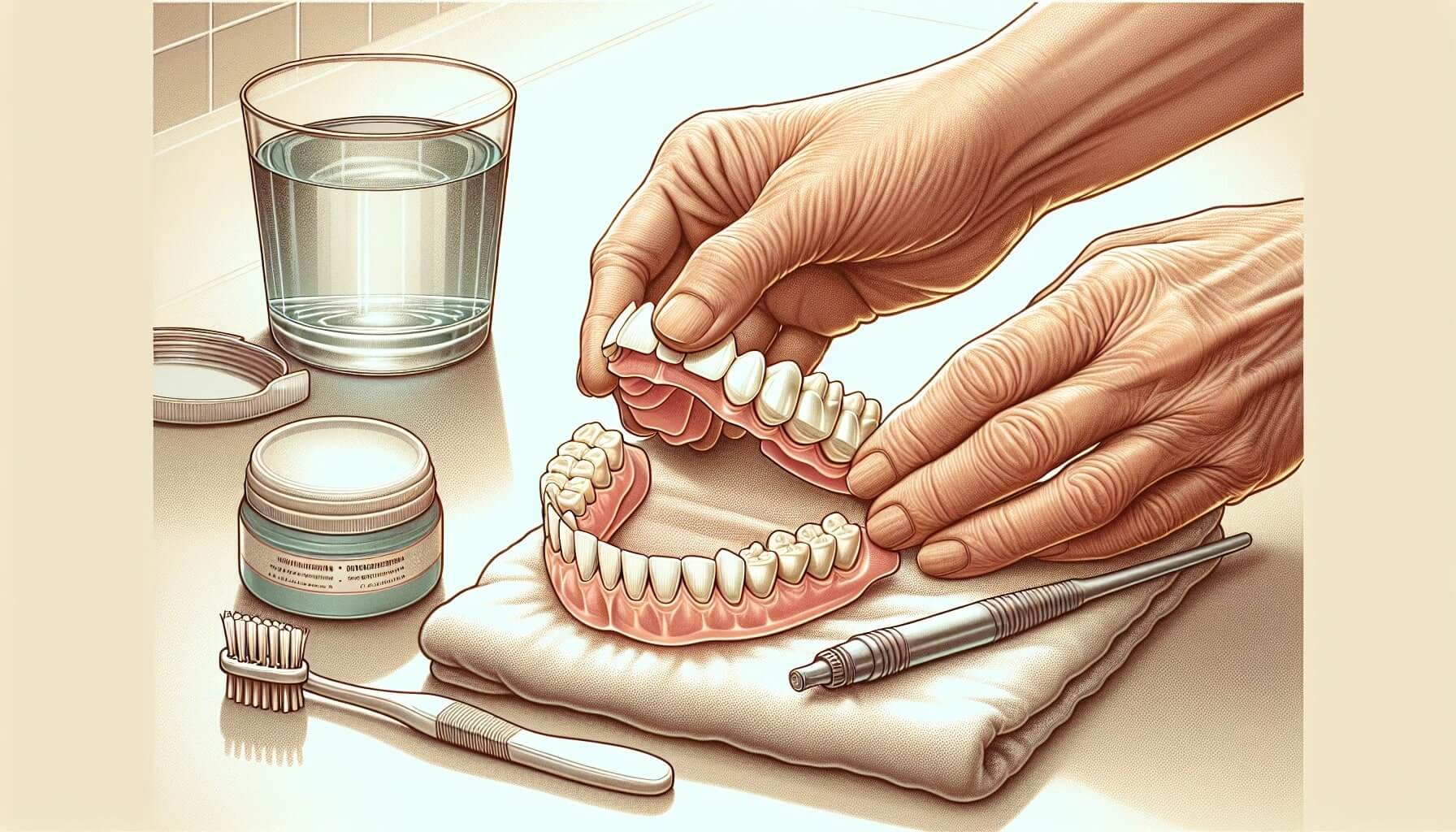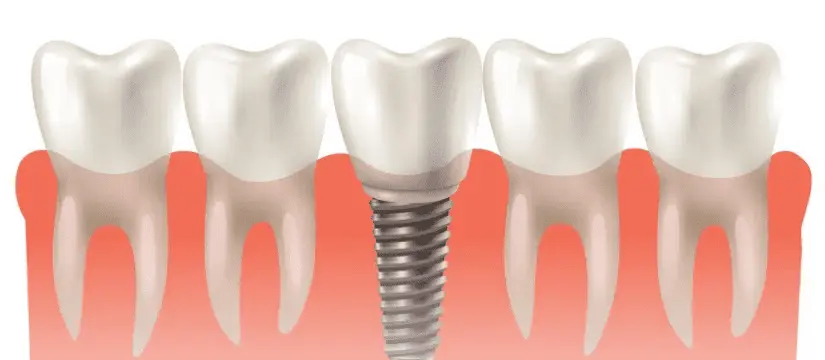
Are you tired of your dentures slipping and causing you discomfort? Imagine being able to laugh, eat, and speak without the fear of your dentures shifting. Implant over denture might just be the solution you’ve been searching for! This innovative dental treatment combines the best aspects of dental implants and dentures to provide a secure, comfortable, and natural-looking solution for individuals with missing teeth. In this comprehensive guide, we will explore the world of implant over denture, their benefits, and the factors that determine candidacy for this life-changing dental treatment.
Key Takeaways
- Implant Overdentures provide increased stability, functionality and aesthetics compared to traditional dentures.
- The implant surgery process is an essential procedure for successful implementation of Implant Overdentures.
- Regular cleaning, oral hygiene practices and dental checkups are necessary for long term maintenance of Implant Overdentures.
Implant Overdentures: A Comprehensive Overview
Implant overdentures, or implant supported dentures, are a remarkable fusion of dental implants and dentures that offer a secure and reliable solution for individuals with missing teeth. This innovative treatment provides enhanced stability, functionality, and aesthetics compared to conventional dentures, ensuring a confident and comfortable smile for those who choose this option. The procedure for obtaining implant supported overdentures generally includes taking impressions, assessing suitability for implant overdentures, the implant surgery process, and fitting the final prosthesis.
The decision to opt for implant overdentures is influenced by factors such as jawbone health and quality, general health and medical conditions, and the number of implants required. These considerations aid in tailoring the treatment to the patient’s unique needs, subsequently enhancing patient satisfaction and guaranteeing a successful dental implant journey.
Understanding Implant Overdentures
Implant overdentures are a type of dental prosthesis that attach to dental implants for improved stability and retention, also known as an implant supported denture. The primary goal of implant overdentures is to provide a secure and comfortable fit that closely resembles the look, feel, and function of natural teeth. In choosing the appropriate attachment systems for implant overdentures, dentists consider their personal preferences, clinical expertise, and experience with oral maxillofacial implants.
Factors such as the location of the implants, the number of implants placed, their length, and the percentage of surface area surrounded by bone are taken into consideration when selecting patients for implant overdentures. Dental implants in Rockville offer durability and resilience, with the potential for a lifetime of use when maintained properly. They can be used to support crowns, bridges, and dentures, providing a renewed sense of life through implant therapy.
Benefits of Implant Overdentures
Implant overdentures present a variety of advantages over traditional dentures. These benefits include:
- Enhanced comfort
- Improved mastication
- Reduced bone resorption
- A more aesthetically pleasing facial appearance
When it comes to chewing efficiency, patients with natural teeth have a 90% efficiency rate, while those with overdentures have a 79% efficiency rate, which is significantly higher than the 59% efficiency rate found in complete denture wearers.
Implant overdentures can also positively impact facial appearance by restoring the contours of the face, adding fullness to the cheeks and lips, and deterring premature aging and bone loss. The dental implants utilized in overdentures contribute to a more youthful and natural-looking smile, and they play a crucial role in preventing bone resorption in the jaw by providing stimulation to the underlying bone. This stimulation helps maintain bone density and reduce the risk of resorption, as well as distributing the biting forces evenly across the jaw, thus lowering the risk of localized bone resorption.
Types of Implant Supported Dentures
Implant supported dentures come in two main types: removable overdentures and fixed implant supported dentures. Each type offers its own set of advantages and attachment methods, catering to the diverse needs and preferences of patients seeking a stable and comfortable solution for their missing teeth. While both types provide enhanced stability compared to traditional dentures, they differ in terms of maintenance, appearance, and functionality.
We will now examine each type and their distinctive characteristics.
Removable Implant Overdentures
Removable implant overdentures are a popular choice among edentulous patients due to their superior comfort and reliability compared to traditional removable dentures. They are designed to “snap on” to the implants in the jawbone, providing enhanced stability and security for the denture. One of the main advantages of removable implant overdentures is the convenience of easy cleaning and maintenance while still providing improved stability compared to traditional dentures.
These overdentures are made from a combination of materials:
- Zirconia implants
- Titanium posts
- Tooth-colored acrylic resin material for the dentures
- Esthetic plastic material (acrylic resin) forming both gums and denture teeth
The secure connection between the two implants and the denture helps prevent slippage and movement, resulting in a more stable and comfortable fit.
Furthermore, implant overdentures help stabilize the jawbone and reduce the risk of bone loss, which is a common issue with traditional dentures.
Fixed Implant Supported Dentures
Fixed implant supported dentures, also referred to as fixed dentures or hybrid dentures, are permanently attached to dental implants in the jawbone, offering a more natural feel and appearance. This type of denture is ideal for individuals who have lost multiple teeth or require full arch restoration, as it provides a secure and stable fit, closely replicating the look, feel, and function of natural teeth. Although fixed implant supported dentures offer a more realistic feel and look compared to removable dentures, they may require more complex maintenance due to their permanent attachment.
The process for acquiring fixed implant supported dentures typically necessitates just one surgery and requires a minimum of five months to complete. It is a multi-stage process that necessitates careful planning and coordination with your dentist. During the process:
- Dental implants are securely and permanently attached to the jawbone, providing a stable foundation for the dentures.
- The denture is constructed with gum-colored material to ensure a seamless blend with the natural appearance of the gums.
- The result is a comfortable, secure, and aesthetically pleasing solution for missing teeth.
The Implant Surgery Process
The implant surgery process is a crucial component of achieving a secure and comfortable implant overdenture. It involves several stages, including a pre-surgery consultation and treatment planning, the surgical procedure itself, and the final placement of the prosthesis. Each stage plays a vital role in ensuring the success of the implant overdenture and the satisfaction of the patient.
We will analyze each stage thoroughly for a better understanding of the process.
Pre-Surgery Consultation and Treatment Planning
Before the implant surgery, a pre-surgery consultation is conducted to assess the patient’s oral health, evaluate the quality of the jawbone, and determine the most suitable type of implant overdenture. This process helps ensure that the chosen treatment is appropriate and tailored to the patient’s specific needs, resulting in improved patient satisfaction and a successful dental implant journey.
During the pre-surgery consultation, the dentist will:
- Carefully evaluate the patient’s medical history to determine if they are a suitable candidate for the procedure
- Discuss the patient’s expectations and goals
- Address any concerns or questions they may have
- Carefully plan the prosthetic treatment to ensure that the implant-supported prosthesis is properly designed and customized for the patient’s needs.
Jawbone health and quality play a significant role in determining the success of dental implants. Patients with insufficient bone may require additional procedures such as bone grafting to ensure a successful implant placement. During the treatment planning process, the dentist will assess the patient’s jawbone density and determine if any additional treatments are necessary to guarantee the success of the implant overdenture.
Surgical Procedure and Healing
Once the pre-surgery consultation and treatment planning are complete, the patient will undergo the surgical procedure for implant overdentures. This procedure entails the following steps:
- Placement of dental implants into the jawbone.
- A period of healing to enable osseointegration, which is the process by which a dental implant fuses with the surrounding bone in the jaw.
- The duration of osseointegration generally takes between six weeks to six months, depending on the location of the implant and the condition of the jawbone.
The type of anesthesia employed during implant overdenture surgery can differ, but commonly used alternatives include IV anesthesia, intravenous anesthesia (twilight sleep), and local anesthesia. The healing process following implant overdenture surgery is of great importance to guarantee that the implant is suitably incorporated into the jawbone and that the prosthesis is firmly attached to the implant. The healing process typically takes approximately 1-2 weeks.
Final Prosthesis Placement
The concluding step in the implant surgery process is the installation of the prosthesis. This involves fitting and adjusting the implant overdenture for optimal comfort, function, and aesthetics. The steps involved in final prosthesis placement for implant overdentures typically include:
- Taking impressions of the implant sites
- Registering the bite to ensure proper alignment
- Placing and adjusting the final prosthesis
- Checking occlusion and relieving any sore spots
- Processing the denture incorporating the implant attachments
- Delivering the final prosthesis to the patient.
The final prosthesis placement process for implant overdentures generally takes an estimated three to six months. During this time, the dentist will carefully evaluate the fit and function of the implant overdenture, making any necessary adjustments to ensure the patient’s comfort and satisfaction. With proper care and maintenance, the implant overdenture can provide a long-lasting, secure, and comfortable solution for missing teeth.
Maintenance and Care for Your Implant Overdenture
Proper maintenance and care for your implant overdenture are essential to ensuring its longevity and continued success. This involves daily cleaning, oral hygiene practices, and regular dental checkups to monitor the health of the dental implants and the surrounding tissues.
Maintaining a proper care routine allows you to reap the many benefits of implant overdentures and keep a healthy, confident smile for a long time.
Daily Cleaning and Oral Hygiene
Daily cleaning and oral hygiene for implant overdentures involve removing and thoroughly cleaning the overdenture, as well as cleaning the implants and attachments to ensure optimal oral health. Non-abrasive toothpaste is recommended for implant overdentures, as it is best to avoid toothpastes marketed for ‘whitening’ or ‘brightening,’ as well as those containing baking soda or activated charcoal.
Optimal practices for cleaning implant overdentures involve:
- Cleaning the dentures daily with a soft brush and fluoride toothpaste
- Removing the dentures and washing them with a denture brush, non-scented antibacterial soap, and water prior to going to bed
- Cleaning along the gum line with care
- Using an alcohol-free, antibacterial mouth rinse
Regular Dental Checkups
Regular dental checkups are necessary to maintain the optimal fit and function of the implant overdenture, and to monitor for any possible complications. The suggested frequency for dental checkups for individuals with implant overdentures may differ depending on the individual’s particular situation. Generally, it is advised to have professional cleanings every six months, however, it is advisable to consult with your dentist for personalized advice.
During dental checkups for patients with implant overdentures, checks and examinations that are typically performed include:
- Checking for the presence of tight contact points at each implant review
- Conducting a dental exam using visual inspection and X-ray results to check for any dental defects
- Performing dental X-rays to detect oral health issues such as cavities and gum disease
- Conducting a comprehensive dental exam, which may include taking X-rays and 3D images, as well as creating models of the teeth and jaw
These checks and examinations help ensure the optimal functioning and maintenance of implant overdentures.
Factors That Determine Candidacy for Implant Overdentures
While implant overdentures can provide a transformative solution for many patients with missing teeth, considering the factors that influence eligibility for this dental treatment is important. The health and quality of the patient’s jawbone, as well as their general health and medical conditions, play a significant role in determining whether implant overdentures are the right choice for them.
Understanding these factors allows dentists to make knowledgeable decisions and deliver the most suitable treatment for their patients.
Jawbone Health and Quality
The health and quality of the jawbone are significant factors in assessing whether a patient is an appropriate candidate for implant overdentures. A robust and healthy jawbone serves as a reliable base for successful implant placement and enduring stability. Patients with insufficient bone may require additional procedures such as bone grafting to ensure a successful implant placement. In addition, tooth loss can have a detrimental effect on jawbone health, leading to facial sagging, shifting of the remaining teeth, and further bone loss due to periodontal disease.
During the pre-surgery consultation, the dentist will assess the patient’s jawbone density and determine if any additional treatments are necessary to guarantee the success of the implant overdenture. Addressing jawbone health and quality enables dentists to guide patients in making knowledgeable decisions about their dental treatment options and ensure a favorable outcome.
General Health and Medical Conditions
General health and medical conditions can also impact the success of dental implants, and certain conditions may contraindicate implant treatment. Conditions such as diabetes, autoimmune diseases, and osteoporosis can potentially affect the success of dental implants. It is essential for individuals with these conditions to maintain good health and collaborate closely with their dental professionals to guarantee the success of dental implants.
Understanding the factors influencing eligibility for implant overdentures allows dentists to offer the most suitable treatment for their patients, guaranteeing a successful and gratifying dental implant journey. With proper care and maintenance, implant overdentures can offer a long-lasting, secure, and comfortable solution for those seeking to replace their missing teeth and regain their confidence.
Summary
Implant overdentures are a revolutionary dental treatment that combines the benefits of dental implants and dentures to provide a secure, comfortable, and natural-looking solution for individuals with missing teeth. With the advantages of enhanced stability, improved mastication, reduced bone resorption, and a more aesthetically pleasing facial appearance, implant overdentures are a game-changing option for those seeking to improve their quality of life.
As you consider implant overdentures as a solution for your dental needs, it’s essential to understand the factors that determine candidacy, the implant surgery process, and the importance of proper maintenance and care. With this information in hand, you can embark on your journey towards a confident, beautiful, and secure smile.
Frequently Asked Questions
Are dental implants good over dentures?
Dental implants offer superior stability, retention and support compared to dentures, and provide a natural-looking and feeling crown or bridge. Therefore, they are often the preferred choice over dentures.
What is the process of implant over dentures?
The process of implant-overdentures involves placing implant bases into the mouth, which are then connected to dental implants. This secure attachment allows for easy removal and cleaning while providing a much more stable denture than resting on the gums. Once the implants have healed, a temporary denture may need to be fitted in place of any removed teeth.
Can you get implants if you already have dentures?
Fortunately, it is still possible for you to get dental implants even after having dentures.
What is the difference between overdenture and implant overdenture?
An overdenture replaces one or more missing teeth while an implant overdenture replaces all the missing teeth with the use of dental implants. Implants either support individual teeth with crowns or bridges, or all of the teeth with the use of an overdenture.
What is the main difference between removable implant overdentures and fixed implant supported dentures?
Removable implant overdentures are removable for cleaning and maintenance, while fixed implant supported dentures are permanently attached to dental implants, providing a more natural feel and look.

